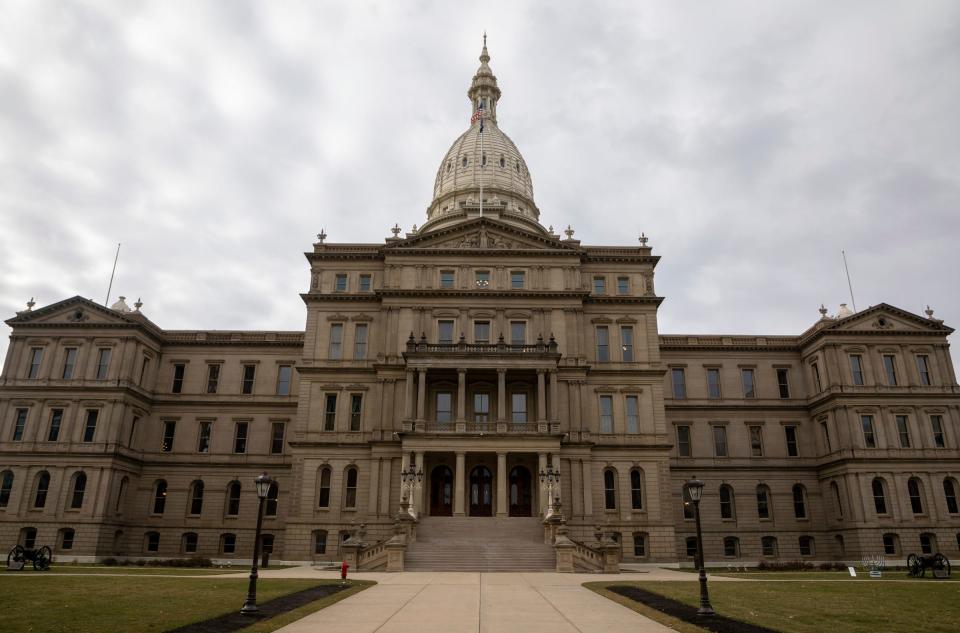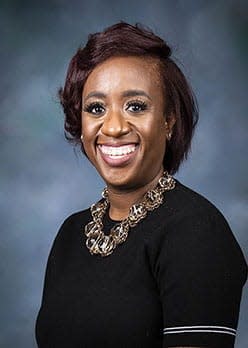You get to draw the line, Detroit. We need you to speak up on redistricting maps. | Opinion
Voters decided in 2018 — by 61% — that amending the State Constitution and creating the Michigan Independent Citizens Redistricting Commission (MICRC) could help achieve fair legislative representation. The people voted to take back their power from politicians who had formed congressional and legislative maps disproportionately misrepresenting constituents and their interests.
Recently, a court tasked MICRC with making changes to the voting map for Detroit residents in state House districts 1, 7, 8, 10, 11, 12, and 14. The map was drawn using specific criteria, such as population, geography, diversity, and partisan fairness. It directly affects who’s working for you in Lansing and what happens in your communities.
Telling the commission what you think about the map is the only way Detroit interests get represented. No one knows better than you, Detroit. That’s why I’m asking Detroiters to show up and speak up on Feb. 21 and Feb. 22 to help us decide which map will best serve your districts.

We have approved nine versions of the map, plus an independent map has been submitted. It’s up to the people to decide which version would mean a fair representation of where they live.
The only way the commission can do the will of the people is when the people give us their input. We trust your judgment. We’re neighbors, retired and working, parents, we’re of all ages — regular people just like you. Look at the maps, and tell us what works or what absolutely needs to be changed and why.
Starting in 2021, the commission asked residents to guide us through this process. At public hearings across the state, thousands of residents shared with us history, economic conditions, geographic challenges and more facts about where they live. They’ve pleaded their cases to have lines drawn in a way that makes sense to the people and circumstances around them.
You have that chance again now. Tell us the history and specifics about the community that only you know. Your voices speak louder and have more influence when it comes to the areas where you live, work and play. Speak up, Detroit, to help us draw an equitable map.
Biden has lost Arab American voters. So what's the point of 'uncommitted'? | Opinion
We want to get it right
We’re working to change a map that represents thousands of residents over seven districts in the city. We want Detroiters from every one of those districts to bring us opinions or concerns about the proposed versions for your state House representative seat.
Every commissioner may not look like you or relate to your story, but each one of us genuinely wants to hear your voice. We want to get it right. We trust you, the grassroots, common sense, citizens who go to the polls every election to choose officials who will make their communities and their issues a priority.
Our job as a commission is to draw electoral lines that reflect the will of the people. We need you to show up and speak up again at hearings this month in Detroit. Take a look at the map versions and then join in at one of these two meetings:
● Wednesday, Feb. 21, 10 a.m.-8 p.m. at Greater Grace Temple, 23500 W. Seven Mile Road, Detroit, MI 48219 (Recess: 1-2 p.m. and 5-6 p.m.)
● Thursday, Feb. 22, 10 a.m.-8 p.m. at Second Ebenezer Church, 14601 Dequindre Road, Detroit, MI 48212 (Recess: 1-2 p.m. and 5-6 p.m.)
Michigan residents have asked for a fresh approach to drawing voting districts, and that’s what we’re working toward. We can’t do it without you.

An entrepreneur and trauma practitioner, Brittni Kellom of Detroit serves on the Michigan Independent Citizens Redistricting Commission.
This article originally appeared on Detroit Free Press: Detroit interests need representation in Lansing. It starts with a map

